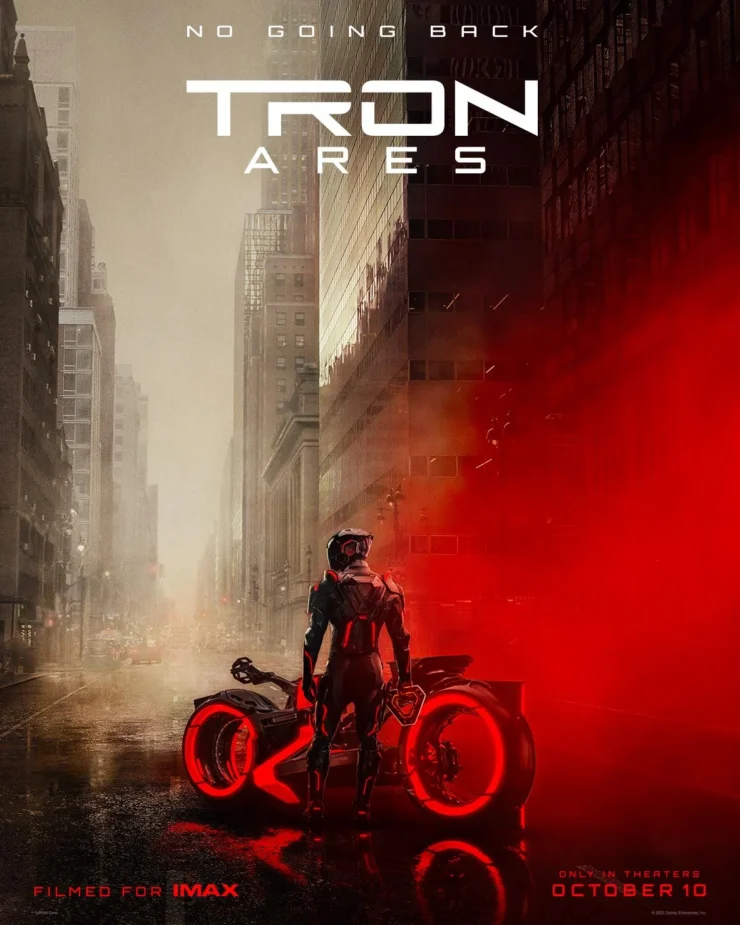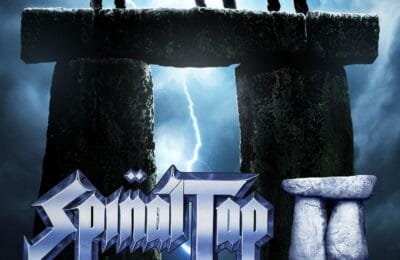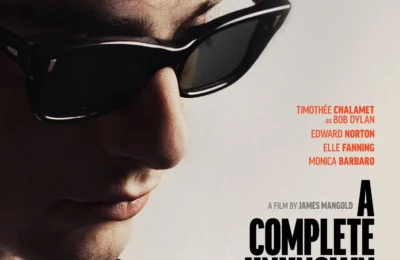When I first saw Tron as a child growing up in Ireland, arcades were still the stuff of American legend. We’d heard whispers of neon-lit dens filled with machines that swallowed quarters and spat out high scores, but they hadn’t yet crossed the Irish Sea. So the very premise of Tron—a man being digitised and sucked into a video game world—already felt wildly futuristic before we even got to the notion of light cycles and identity discs. It was a film that hinted at worlds just beyond our understanding, at a digital frontier that, in 1982, felt both alien and prophetic.
Tron: Ares, by contrast, arrives in a very different landscape. We live in the grid now—permanently plugged in, endlessly logged on. So rather than awe at the concept of digital existence, the burden on Ares is to justify its own relevance in a world that has caught up to its fiction. And surprisingly, despite setting my expectations so low they were practically subterranean, I found myself… entertained.
From Flynn to Leto
The original Tron leaned heavily on Jeff Bridges’ zen-like charm as Kevin Flynn—a maverick hacker with a twinkle in his eye, equal parts rebel and philosopher. Bridges grounded that neon fever dream with human warmth. Ares doesn’t have a Flynn at its core, but it does have Jared Leto, and I’ll admit this much: I walked in ready to roll my eyes, and he quietly disarmed me. After a string of bewildering, often cringe-inducing performances (Morbius still haunts my sleep), Leto here delivers a restrained, almost haunted presence. It’s a redemption arc of sorts—not triumphant, but dignified. He plays Ares with the detachment of a being who knows he shouldn’t exist in our world, and that sense of impermanence lends him an unexpected gravity.
Where Ares stumbles is in its villain. The “big bad” seems to make decisions by dartboard—no logic, no strategy, just chaos for chaos’ sake. In a universe built on the binary of order versus freedom, it’s a disappointment to have such a vaguely motivated antagonist. Even Tron: Legacy—for all its dazzle-over-depth—understood that digital tyranny requires intent.
Sound and Substance
But credit where it’s due: Ares doesn’t outstay its welcome. It moves with purpose, never lapsing into the bloated self-importance that sinks so many modern franchise films. And the real star here? The soundtrack. The Nine Inch Nails score throbs with industrial menace and glitchy melancholy. Its discordant textures mesh beautifully with a story about beings who weren’t meant to be permanent, who flicker in and out of reality like corrupted code. It’s a brave, abrasive choice—and it elevates the entire experience.
Echoes of a Digital Dream
Tron: Ares is not a visionary work. It won’t redefine sci-fi the way the original once hinted it might. But it is a solid, curious continuation—an echo of a dream I had as a child, when computers were magic and the grid was infinite. It entertained me, it surprised me (mostly in the casting), and it reminded me that every now and then, it’s okay for a franchise simply to be rather than reboot everything we know.




















